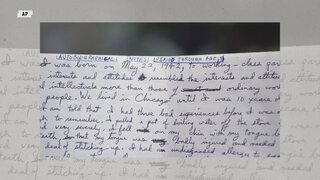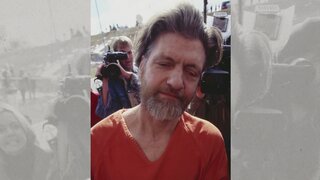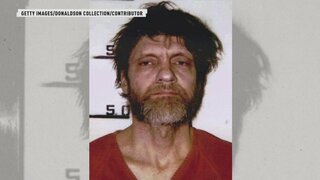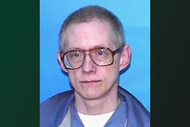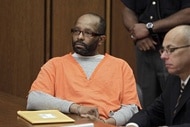Create a free profile to get unlimited access to exclusive videos, breaking news, sweepstakes, and more!
Why Did Ted Kacyznski Go To The Hospital As A Child And Why Was He Different When He Got Out?
Ted Kaczynski — now known in infamy as The Unabomber — had once been a “laughing, active baby,” according to his brother David.
When Ted Kacyznski was just a baby he was temporarily separated from his parents — and his mother has always believed that the experience may have permanently scarred him.
Kacyznski — who would grow up to become the notorious Unabomber — had once been a “laughing, active baby,” his brother David Kacyznski said in the new Netflix docuseries Unabomber-In His Own Words.
But when Kaczynski was at a tender age, he got sick and was taken to the hospital with hives — or swollen, red bumps that appear on the skin — and his family says he was isolated from his parents as doctors tried to determine what was wrong with the infant.
RELATED: Who Were The Victims Of Unabomber Ted Kaczynski's Acts Of Terror?
“Mom always faulted the hospital. They would have been there every day visiting him but the hospital said no,” David Kaczynski said in the docuseries. “It was kind of like, ‘we don’t want parents to be in the way, we’ve got our work to do. We have our little baby to cure so keep your distance.’ They were only allowed to visit him two times a week for two hours.”
Legal analyst Lis Wiehl, author of the upcoming book Hunting the Unabomber: The FBI, Ted Kaczynski, and the Capture of America’s Most Notorious Domestic Terrorist, told Oxygen.com that Ted been brought to the hospital with hives but when he returned home, he just wasn’t the same bubbly boy he had once been.
“He’d come out and he’d never been the same after that,” she said.
Ted had “completely shut down” after returning home and stopped smiling and having eye contact with his parents, according to David.
It took weeks for his parents to regain his “trust a little bit” and be able to make some eye contact with their young son Ted, David told the docuseries.
Some scholars believe this early experience could have had a long-lasting effect on the man who would go on to maim and kill unsuspecting targets by sending bombs through the mail.
“There is this theory that an infant that doesn’t bond with the mother, develops psychopathy as a defense mechanism that they feel no pain, they feel no trauma, but of course at the same time, they lose a sense of empathy, a moral compass,” Peter Vronsky, PhD, author of “Serial Killers” said in the docu-series.
The filmmakers decided to include details of the hospitalization in the docu-series because the family felt so adamantly that the incident could have had a long-lasting impact, Elliott Halpern, president and executive producer at Yap Films, told Oxygen.com
“Now, there is so much documentation of what early abandonment in the short term does at a critical point in an infant’s development to attachment,” Halpern added.
Forensic psychologist Susan J. Lewis, PhD, JD, told Oxygen.com that an inability to bond can have detrimental effects on a child.
“A child unable to form an attachment to a caretaker tends to have relationship issues over their lifetime,” she said.
However, Lewis, who is the author of the book “From Deep Within: A Forensic & Clinical Psychologist’s Journey,” said it is difficult to know whether Kaczynski could be suffering from a psychotic disorder or a personality disorder — as there is no “empirical” data to support he was suffering from either, she said.
“A single experience in one's youth is unlikely to be a direct cause of psychopathy. As far as I know nothing this complex is caused by a linear relationship between two variables alone,” she said.
Kaczynski’s mother, Wanda, continued to believe that her son was never the same after the early childhood experience and warned David to be sensitive about his older brother’s possible feelings of abandonment.
“At the tail end of that conversation she said, ‘you know, Ted may have felt abandoned as a little baby’,” David recalled in the docuseries. “’You don’t ever abandon your brother, David, because that’s what he fears the most.’ And of course, I am thinking, ‘well, I will never abandon Ted. Why would I abandon Ted? I love Ted.’ But of course, those words echoed in my mind years and years later when we had to deal with Ted’s violence.”
David and his wife Linda Patrik would ultimately contact the FBI after believing that a manifesto written by the Unabomber bared an uncanny resemblance to other writings by Kaczynski.
Wiehl told Oxygen.com the early childhood hospitalization was one of the first things Wanda brought up with FBI agents over tea as they discussed the grave allegations against her oldest son.
“He’s different, he’s a unique personality, but my son is not a killer. I know that,” Wanda told investigators, according to Wiehl’s book.
She went on to discuss his early hospitalization for the hives and the “difficult time” Ted Kaczynski had growing up as he struggled to fit in with others.
“He has problems with friends and he’s very solitary but he’s brilliant. He went to Harvard at 16, skipped two grades and went to Harvard,” she said according to the book. “He was misunderstood. He was a sensitive boy. He’s not like everyone else, but he doesn’t have to be.”
Ted Kaczynski would later plead guilty to all 13 counts against him related to a nearly 20-year bombing spree that claimed the lives of three people and injured nearly two dozen others. Over two decades, Kaczynski sent bombs in the mail to unsuspecting victims, often targeting the people he believed were part of the industrialization or technology movements that prevented him from living a reclusive and primitive lifestyle in rural Montana.
Kaczynski has since died in prison of a suspected suicide, according to the Associated Press. He was 81.
Additional reporting by Gina Tron
(This article was originally published on February 24, 2020. It was updated on June 12, 2023.)

